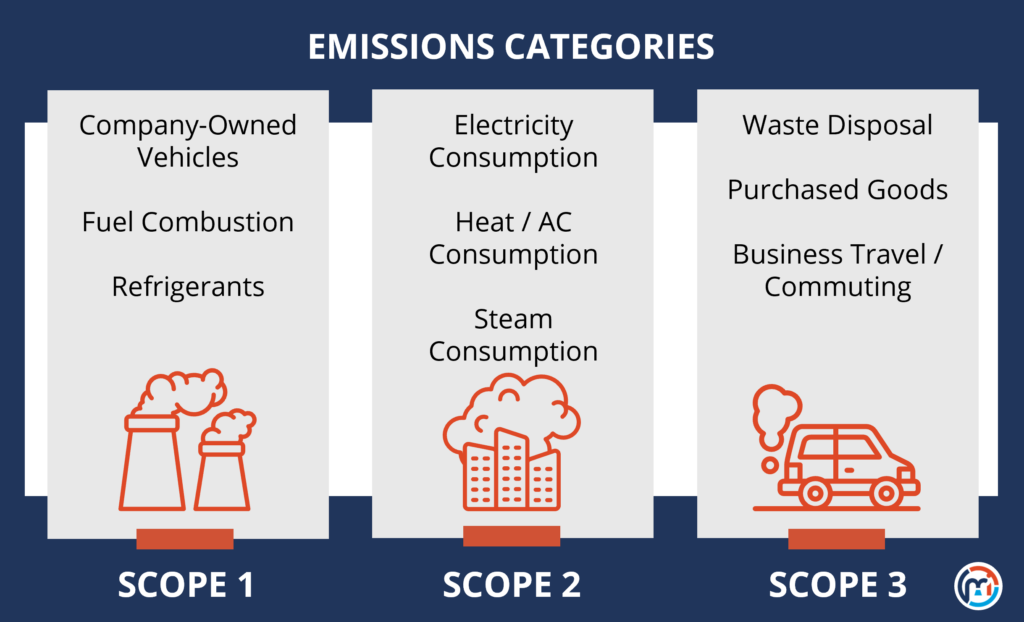Event Sustainability 101
If you’re just starting out on your event sustainability journey, you may be overwhelmed by the amount of information available. It’s hard to know where to start if you don’t know what’s most important or what everything means. In this blog post, we’ll break down the need-to-know basics, explore the importance of sustainable events, and dive into how you can experience the difference with M&IW’s solutions and recommendations.
First, let’s explore a real-world example. In the video below, M&IW’s Sustainability Champion, Donna Collins, shares some of the most impactful sustainable practices from the 2024 M&IW Summit.
Event Sustainability Basics
Carbon Footprint
The goal of sustainable event practices is to reduce your program’s environmental impact, which is most easily measured by its carbon footprint. A carbon footprint is the amount of greenhouse gases, including carbon dioxide, emitted due to the activities of a person, organization, or, in this case, event. These emissions are divided into three categories:
- Scope 1 emissions are direct emissions from sources owned or controlled by an organization, such as company-owned vehicles.
- Scope 2 consists of indirect emissions from the consumption of purchased electricity, heat, or steam.
- Scope 3 emissions are indirect emissions from the activities of an organization that are not included in Scope 2. Business travel, meetings, and events are all considered Scope 3.

Event Emissions
For the meetings and events industry, the five main sources of emissions in order of impact are:
- Travel, a majority of which comes from attendee travel and which accounts for up to 90% of an event’s total emissions.
- Energy used at hotels and venues and for AV needs. Energy consumption averages 8% of total event emissions.
- Sourcing of materials, including the entire supply chain from fabrication to delivery. This highlights the importance of choosing sustainable suppliers.
- Food choices, sourcing, and waste. Locally sourced, vegetarian menu choices have the lowest carbon footprint.
- Waste, the most visible emissions source to attendees and one that can negatively impact an event reputation if not handled well.
Corporate Social Responsibility
An often-overlooked aspect of sustainability is corporate social responsibility (CSR), a business perspective that considers the company’s economic, social, and environmental impact with the intention of having a positive effect on society. In addition to following sustainable practices, events should embrace CSR with the ideology of leaving a destination better off than you found it.
Giveback activities can be incorporated into events to cover all three areas of CSR. Examples include:
- Environmental: Cleaning up a local park or building beehives
- Social: Creating care packages or stuffing backpacks with school supplies
- Economic: Fundraising for a local charity or donating a portion of registration fees


Why You Should Care About Event Sustainability
Simply put, you should prioritize event sustainability because it’s the right thing to do for our planet and its inhabitants. But if that’s not convincing enough, there are also business-related reasons to support environmentally friendly practices.
As hinted above, not prioritizing sustainability can hurt the reputation of your event and your organization as a whole. 85% of consumers are shifting their behavior to support sustainable brands, and younger consumers in particular are holding companies accountable for setting and addressing sustainability goals.
Additionally, the SEC currently requires publicly traded companies in the US to report Scope 1 and 2 emissions and climate-related disclosures. While the SEC has put a hold on Scope 3 requirements, the EU is still moving forward with those regulations. California has also started introducing Scope 3 reporting guidelines, so the rest of the US is likely to eventually follow. While that exact timeline is unknown, the sooner you start tracking, reporting on, and reducing your Scope 3 emissions, the more prepared you will be when that day comes.
Event Sustainability: The M&IW Difference
Whether you want to start preparing for the Scope 3 requirements now or are looking for guidance on your first foray into event sustainability, M&IW meets you where you’re at. We recently received a Bronze Medal for our EcoVadis Sustainability Rating and have the tools and experience to transform your sustainability efforts.
Our suite of sustainable solutions includes:
- Sourcing green and energy-efficient hotels and venues. Sustainability questions are included in RFPs for hotels and suppliers along with contractual language to support initiatives when applicable.
- Donating unused food to people in need through our partnership with Copia. Consistently donating your surplus means less methane from landfills, more meals for the 13% of Americans who are food insecure, and tax donation receipts for your organization.
- Waste diversion strategies such as the elimination of single use plastic, usage of mobile apps for event communications, the elimination of onsite printed materials, and prioritizing the use of reusable items both within an event and across organizational programs.
- Tracking travel and energy emissions and providing offsetting or carbon removal sponsorship options. Even just tracking emissions is a good start; by measuring these impacts, you can better understand your carbon footprint and plan how to reduce it.
For additional insight into how organizations like yours embrace event sustainability, read our blog post.
Next Steps
Discover the difference M&IW’s sustainable practices can make for your meetings, events, and incentives. Contact us to get started or click the button below to learn more. Already an M&IW customer? Contact your Customer Success Manager.
Contributor

Donna Collins
Sustainability Champion
Meetings & Incentives Worldwide, Inc.


